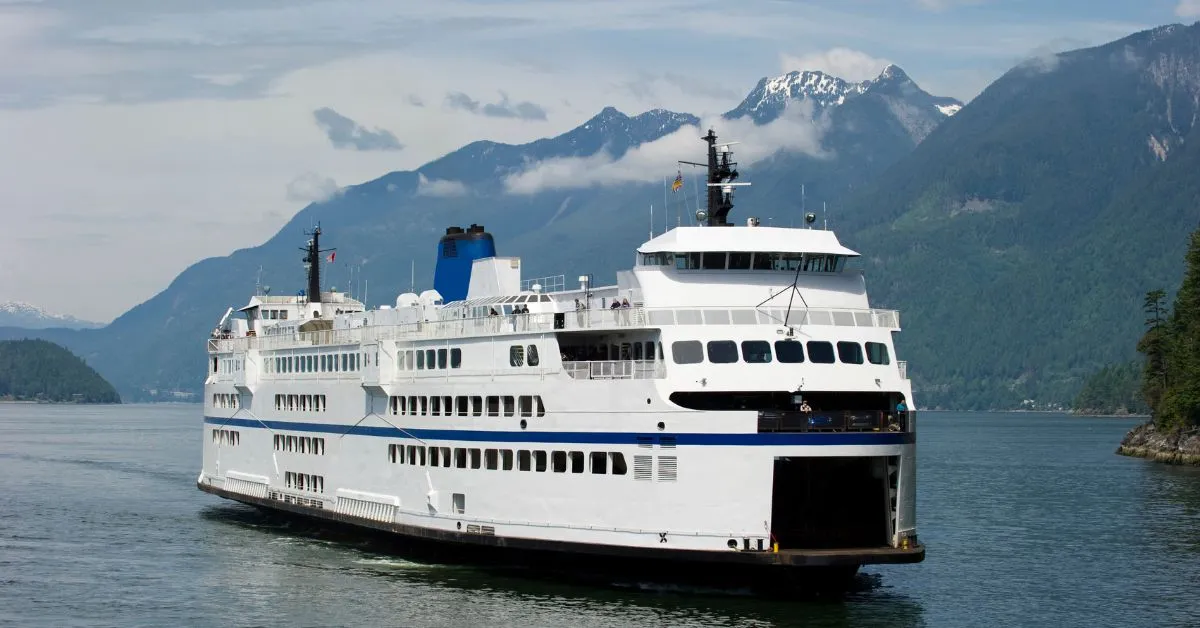It’s no secret that the world is increasingly becoming a more and more connected place.
It’s easier than ever to get from Point A to Point B – no matter where in the world you happen to be.
One of the popular modes of transportation is water transport, which has a number of advantages over other types of transport.
But like everything, water transport also has its own set of disadvantages.
In this guide, we’ll discuss the advantages and disadvantages of water transport so that you can decide if it’s the right mode of transportation for you.

5 Advantages Of Traveling By Boat
Below, we’ll discuss the pros of traveling by boat.
1. Water Transport Is A Relatively Cheap Way To Travel Long Distances
One of the major advantages of water transport is that it’s relatively cheap to travel long distances by boat.
For example, in the Philippines, a ferry ride is much cheaper than a flight. Not to mention, it’s also a lot more scenic!
2. It’s A Very Efficient Way To Move A Car Or Luggage
Another advantage of water transport is that it’s a very efficient way to move cars or luggage from one place to another.
If you’re moving house or going on a long road trip, water transport can be a great option for getting your belongings from Point A to Point B.
That said, the transport chosen could have a limit on luggage, so make sure you check before you book your trip!
3. It’s A Fun Way To See The World
Water transport is also a great way to see the world. When you’re on a boat, you have a front-row seat to some of the most beautiful scenery on earth.
From sunsets over the ocean to towering cliffs and everything in between, there’s no better way to see the world than from the deck of a boat.
You can also access different destinations such as Alaska or Antarctica by water transport which are difficult to reach by road or air.
4. It’s A Great Way To Relax And Unwind
Another advantage of water transport is that it’s a great way to relax and unwind.
Whether you’re taking a leisurely cruise down a river or simply spending a day at the beach, there’s no better way to forget about your stresses and relax than by spending some time on the water.
That said, you won’t need to drive, stay in the same position for hours, or sit in traffic when you’re on a boat. So, if you’re looking for a relaxing way to travel, water transport is definitely the way to go.
5. Water Transport Is Relatively Environmentally Friendly
Lastly, water transport is relatively environmentally friendly. When compared to other modes of transportation, such as cars and planes, boats produce far fewer emissions.
So, if you’re looking for a way to travel that won’t have a negative impact on the environment, water transport is a great option.
5 Disadvantages Of Traveling By Boat
Now that we’ve looked at the advantages of traveling with water transport, let’s take a look at the disadvantages.
1. Water Transport Can Be Slower Than Other Methods
One of the major disadvantages of water transport is that it can be slower than other methods of transportation. For example, a cruise ship can take days or even weeks to reach its destination.
And while this can be seen as an advantage (after all, you have plenty of time to relax and enjoy the ride), it can also be a major downside if you’re in a hurry to get from Point A to Point B.
2. Water Transport Can Be Expensive
Another disadvantage of water transport is that it can be expensive. While boat travel is generally cheaper than air travel, it can still cost a pretty penny – especially if you’re taking a long-distance trip.
That said, the cost of water transport can vary depending on the type of transport you choose. For example, a ferry ride is typically cheaper than a cruise.
So, if you’re on a budget, be sure to do your research before booking your trip.
If you’re traveling by boat overnight, you may want to look into booking a cabin for a more comfortable experience, or sleep on the deck if you’re on a budget.
3. Water Transport Can Be Dangerous
While water transport is generally safe, it can be dangerous in certain situations. For example, if you’re taking a long-distance trip, there’s always the possibility of bad weather or rough seas.
Unfortunately, water transport can also be susceptible to accidents.
So, if you’re planning on taking a water transport trip, be sure to research the safety record of the company you’re booking with.
That said, it’s important to note that accidents don’t happen regularly. Overall, traveling by boat is safe.
4. Water Transport Can Be Uncomfortable
Another disadvantage of water transport is that it can be uncomfortable.
For example, if you’re taking a long-distance trip, you may be confined to the boat for hours or even days.
And, if you’re traveling on rough seas, you may experience motion sickness.
So, if you’re prone to motion sickness, be sure to take precautions before boarding your vessel.
5. Water Transport Can Be Unreliable
Finally, water transport can be unreliable. While boat travel is generally safe and reliable, there is always the possibility of delays or cancellations due to bad weather or other unforeseen circumstances.
So, if you’re planning on taking a water transport trip, be sure to allow for some flexibility in your schedule.
Final Thoughts On Traveling By Sea
Overall, water transport offers several advantages over other methods of transportation.
These include its environmental friendliness, affordability, and relaxing nature.
However, it can also be slower than other modes of transport, uncomfortable and dangerous.
So, before booking your next trip by sea, be sure to weigh the pros and cons carefully to see if it’s the right option for you.
Traveling by sea can be the right solution to visit islands, but also remote locations like fjords.
Water transport is an interesting way to move around the world, but it’s not without its disadvantages.
So be sure to consider all the pros and cons before booking your next trip by boat!
Not sure if traveling by sea is the right solution for you? Compare different transportation methods:




